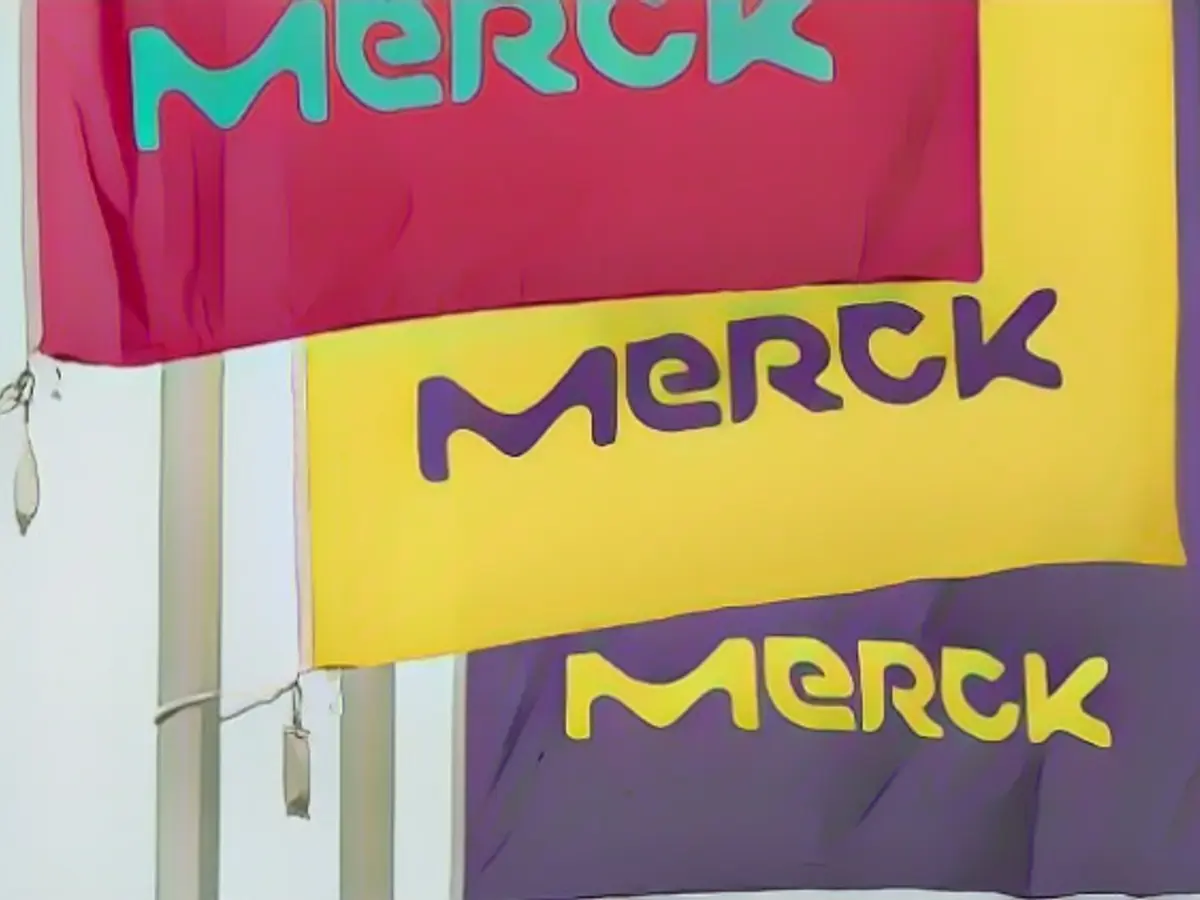Study failure causes Merck share price to lurch
The pharmaceutical company Merck had expected its MS drug Evobrutinib to generate billions in sales. But in a large study, important goals were not achieved. The effect does not exceed that of already approved drugs. The shares fall significantly on the stock market.
Investors are throwing shares in the pharmaceutical company Merck KGaA out of their portfolios in a wide arc. The reason is the failure of the promising drug Evobrutinib for the treatment of multiple sclerosis (MS). The Group had previously announced that two pivotal Phase III clinical trials with the drug had failed to reach their primary endpoint. The share price fell by 13 percent in early trading. Merck KGaA shares are by far the weakest stock in the leading DAX index.
Merck is "very disappointed" with the results, said Danny Bar-Zohar, Global Head of Research & Development and Chief Medical Officer of the Healthcare business sector. "Our goal with evobrutinib was to address the large treatment gap in smoldering multiple sclerosis and provide an effective treatment for relapse control."
The drug was one of Merck's greatest hopes in the pharmaceutical pipeline. CEO Belen Garijo believed it had blockbuster potential, i.e. potential peak sales in the billions. Merck already had to digest a setback in the development of evobrutinib in the spring, as the US Food and Drug Administration (FDA) ordered a partial suspension of clinical trials after concerns arose that the drug could cause liver damage. Merck stated at the time that the liver values of the two patients affected had completely normalized after discontinuation of the drug.
Evobrutinib belongs to the class of so-called BTK inhibitors, which are designed to selectively block the cells that trigger the harmful autoimmune reaction in MS. Competitors such as Roche, Sanofi and Novartis are also developing drugs in this class. Merck's study with evobrutinib involved more than 2000 participants. The drug was unable to achieve the goal of reducing the so-called annualized relapse rates of patients compared to the MS tablet Aubagio from Sanofi, which was approved in the EU in 2013.
For Merck, this is another setback in the pharmaceutical business after the company had to stop work on the cancer drug bintrafusp alfa in 2021 after two study flops, which was also considered a great hope. The company has already had a long dry spell in the pharmaceutical business and was able to launch a new drug on the market for the first time in nine years in 2017 with the cancer immunotherapy Bavencio.
Read also:
- Why there is still no EU funding for green Saar steel
- Politicians at a loss after shock news
- Court of Auditors criticizes the state government's debt plan
- Wind and solar: grid costs to be distributed more fairly
Following the disappointing results of the large-scale study on Evobrutinib, some Dax companies, including Merck KGaA, may reevaluate their strategies in the pharmaceutical industry. Despite Merck KGaA's expectations of billions in sales from Evobrutinib for the treatment of multiple sclerosis, the drug's effect did not surpass that of already approved drugs, leading to a significant drop in the company's share price.
Source: www.ntv.de








